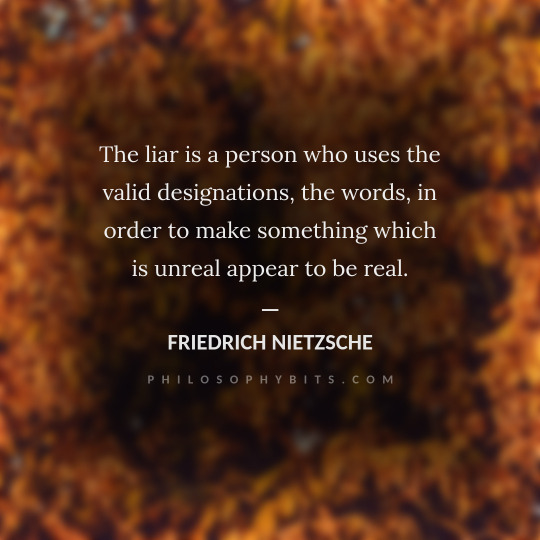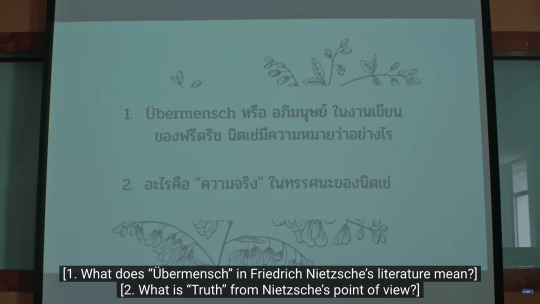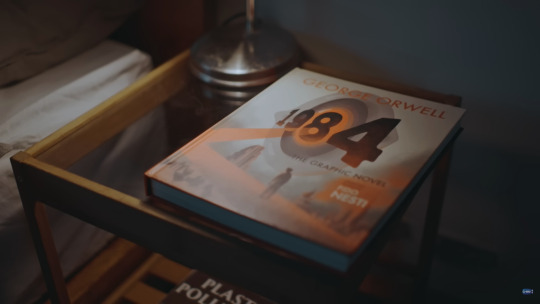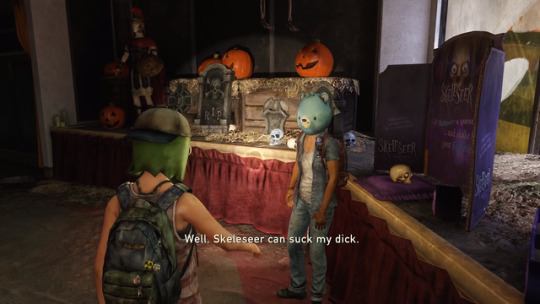#On Truth and Lies in a Nonmoral Sense
Quote
What then is truth? A movable host of metaphors, metonymies, and anthropomorphisms: in short, a sum of human relations which have been poetically and rhetorically intensified, transferred, and embellished, and which, after long usage, seem to a people to be fixed, canonical, and binding.
Friedrich Nietzsche, On Truth and Lies in a Nonmoral Sense
#philosophy#quotes#Friedrich Nietzsche#On Truth and Lies in a Nonmoral Sense#truth#metaphor#metonymy#anthropomorphism#language#conventions#norms
219 notes
·
View notes
Text

#philosophy#quotes#Friedrich Nietzsche#On Truth and Lies in a Nonmoral Sense#Nietzsche#lies#liars#words#language#falsity
11 notes
·
View notes
Text
"What then is truth? A movable host of metaphors, metonymies, and anthropomorphisms: in short, a sum of human relations which have been poetically and rhetorically intensified, transferred, and embellished, and which, after long usage, seem to a people to be fixed, canonical, and binding. Truths are illusions which we have forgotten are illusions — they are metaphors that have become worn out and have been drained of sensuous force, coins which have lost their embossing and are now considered as metal and no longer as coins."
-Friedrich Nietzsche, On Truth and Lies in a Nonmoral Sense
64 notes
·
View notes
Text
Be My Favorite: I’m All Caught Up!
So two nights ago, I kind of lost it, HAPPILY, in a binge of Be My Favorite -- I’m here to report that I’m all caught up, I’m VERY SEATED for the ongoing episodes, and hopefully I can get it together to do episodic meta from here on out.
First off, I’d like to say, publicly, that I had written multiple times in previous posts that I would NOT be watching BMF after having watched SOTUS, SOTUS S, and Our Skyy x SOTUS for my Old GMMTV Challenge. I thought Krist Perawat’s acting in SOTUS, etc., was awful, especially compared to what Singto Prachaya was delivering. While Our Skyy x SOTUS was markedly better than the two full series, Krist wiping his mouth after the airport kiss still gave cringe, and I was like, peace out, cub scout, hope you never do another BL again.
I RECANT. Clearly, much has improved by way of Krist’s acting skill -- and, likely, by way of how GMMTV workshops their actors and scripts before filming a BL. (And I REALLY want to thank @rocketturtle4 here for going very hard in the paint for Arthit and tagging me in your post, because your SOTUS meta absolutely had me thinking about Krist’s acting again. That piece was part of the inspiration and urge that led me to pick up BMF. Thank you! Good things happen when you clown, friend!)
(As well, I want to note that while Krist’s reputation regarding homophobia has not, by way of general public judgment, been fully redeemed, that I think recent discourse surrounding the early days of the pressures of shipper culture and how his comments were received is very interesting to peruse -- especially for me, as I develop a MUCH sharper eye towards the toxic, negative impacts of shipper culture. This amazing dialogue between @absolutebl and @thelblproject has been EXTREMELY helpful to me in setting that history and context for me.)
So, with all that said:
Be My Favorite is a FABULOUS SHOW. The writing is SHARP, the acting is GREAT, and the chemistry between Krist and Gawin Caskey is SUPERB.
Catching up to episode 7, I want to review what I’m seeing as the major themes of the series, ones that I’m seriously enjoying:
1) As I noted in my Monday night liveblogs, this show is structured in part around the inspiration of a few old yt dudes philosophers and physicists regarding time, space, truth, and relative existence. We gots Nietzsche, Einstein, Orwell, and -- gah, the Thai writer of the book that Max was reading early in the series about Thai social hierarchy, and I cannot find the post that explains that book (if someone has the link for that post, please send, and I’ll edit it in here). (EDITED TO ADD: thank you to @grapejuicegay for sending me the link! The book Max was reading was The Face of Thai Feudalism, and here’s a wiki link for the book). Otherwise, receipts!



Just to recap what I wrote in underslept franticness on Monday night: the first of the old dudes to enter the ring of this series is Einstein, regarding time travel. I mentioned that I am a huge fan of Jack Finney’s Time and Again -- I loved that book in high school. It’s a fantasy about how the American government uses Einstein’s work on weight and light to understand the dimensional aspects of time, the present, the past, and the future, and how multiple existences may be present -- if you can create a pathway into them.
I don’t know at all if BMF is talking to Time and Again, per se, but it IS talking to Einstein and relativity, along with Nietzsche and what’s referenced in the slide above -- Nietzsche’s On Truth and Lies in a Nonmoral Sense (and, yooo: here’s the text! Read it! Everyone: READ MORE NIETZSCHE! Let’s meditate on power together when we have the time, eeee!)
I really want someone with a Ph.D to not allow me to say this, but let me offer a blasé summary of the text to say: what’s essentially being said in the dialogue between Einstein and Nietzsche is that truth is relative to the moment in time in which truth is being sought, and to the individual to whom the truth may have meaning. Truth is relative to the beholder of that person that is seeking truth.
In other words: what, exactly, is the truth that Kawi is seeking?
2) @respectthepetty (here) and @lurkingshan (here) are writing excellent meta on the dislikability of Kawi, and how this search for his “truth” is fucking him the hell up. First: I TOTALLY AGREE. This dude wants to spin that damn ball to find out if his life gets “better.”
And what we’re seeing is that he’s slowly relaxing the parameters of what “better” means. What “better” HAD meant to him, early on, was that he’d be in love with Pear, and that his dad would be alive. In episode 7′s rock star world, we see neither of those things happening; in fact, in none of his presumed worlds do we see that happening.
Besides Kawi’s dislikability, which I’ll get back to in a second, I just want to say:
Him jumping to world after world is SO important to this story, and I really like that this series isn’t trying to hone in on ONE world being THE RIGHT WORLD, because -- Nietzsche, Einstein, and Orwell aren’t necessarily the guys you want on the bench arguing in favor of a ONE RIGHT WORLD perspective. They’re the dudes who are like -- bend some light here (Einstein), throw in a linguistical concept there (Nietzsche), and add some questionable politics and power control issues (Orwell), and, well, you got some messy worlds there, my friends.
In other worlds: this show is set, per episode, in the world in which Kawi is existing at that moment. It has relativity to his other worlds -- because he’s an anchor in all these worlds -- but not one specific present moment is his absolute truth. YOW.
3) Sooooo, where does that get us? It gets us to episode 7, an episode that really moved us...“forward” (??) (ha) in this series. In that, Kawi changed enough in his initial state at the start of the series to create a new future for himself that was vastly different than the ones in which Pisaeng was going to marry Pear.
What I am loving about this series is that by being anchored by the influence of the philosophers, in part, that we get to see a lot more light into Kawi and Pisaeng. Pisaeng, as we now know, was pressured by his mother to stay in the closet at a young age (cc @brazilian-whalien52 and @respectthepetty on the linked post!).
What is your truth if you’re in the closet for so long?
In episode 7, Pisaeng has disappeared from the lives of his friends and Kawi for months. We don’t exactly know why at this point. But we get a hint at the very end of the episode -- that he is ultimately spending his time, possibly in multiple worlds, being patient for Kawi to come around to Pisaeng’s love.
Early in the series, as well, Kawi notes to Pisaeng that Pisaeng wasn’t being honest to Pear about not having feelings for Pear. I think this extrapolation has already happened in previous posts, but I’m not finding them at the moment, so let me give flowers to everyone who has said: that Pisaeng’s internal reality is also a world, a present, that Kawi doesn’t necessarily share by way of absolute reality -- in that, what Kawi demands of Pisaeng early on is relative revelation for the sake of the people around him. And how will Pisaeng’s truth affect others? How will it affect Kawi, how will it affect his mom? How does it affect Pear?
All of that is relative truth that each individual, involved in these circles, must translate AND accept and digest in their own individual, micro-level perceptions. Pisaeng’s own truth BECOMES a kind of truth that is slightly different for each person that’s receiving it.
4) And the same for Kawi. Except, we’re seeing it develop differently for Kawi. I think we have known, up until the end of episode 7, what “better” meant for Kawi, as I wrote previously -- Pear, his dad’s health, etc.
But I think we’re going to see a change in Kawi now (hopefully). We’re seeing that Pisaeng keeps returning to Kawi, in almost all the worlds, as Kawi improves himself and checks himself against his “present.” Surely, what we want to see in a BL is Kawi warming up to Pisaeng’s affections. The fact that time travel is the modality by which Kawi will experience that change -- vis à vis some VERY fascinating perspectives on what “truth” really means -- is FABULOUS.
It’s unique, because -- I think -- in the story of Pisaeng, do we see a macro commentary on the reality of being queer in majority cishet societies that may view queerness as dangerous or something to be kept secret, as Pisaeng’s mom indicates.
To keep one’s queerness in the closet -- FOR THE SAKE OF SOMEONE ELSE, damn it -- isn’t that a violation of one’s own truth? And one’s own reality?
5) And, final point (for now) (ha) is: a theme that’s been running through my head on this series is how both Kawi and Pisaeng CHALLENGE EACH OTHER TO CHANGE themselves. Maybe even... for “the better.”
Previously to all of this time travel stuff -- neither of them experienced external pressure to change their worldviews. Pisaeng was going to marry Pear as a closeted queer individual. Kawi was going to live out his life friendless and companion-less.
Instead, THROUGH the time travel, and through their growth in all of these different worlds -- BOTH of them have been forced to change.
I really like this lesson. One can become complacent. As Theory of Love so deftly demonstrated: behavioral change is really hard. But it might be a little less hard if you have a companion, a friend, maybe even a lover, going through similar changes as well.
Kawi is still dislikable, I think, because he’s not aware of either HOW or WHY he’s changing. But he’s changing, alright. He doesn’t have the context, yet, as to why this might be good for him.
Maybe the crystal ball will tell him that?
OR, MAYBE: he’ll come to realize that contentment in the present is ultimately what will give him the most happiness. As Pear said to Kawi during her wedding in episode 7:
“But as we grew older, lived our lives, and continued to make mistakes, we’d have to accept that this was the farthest that we could achieve.”
What Pear is saying here is: you can stop striving sometimes, Kawi. If you can just -- BE -- and accept that life is not PERFECT -- then your future WILL just BE the result of THAT work THAT YOU DO NOW, THAT WILL CONTAIN MISTAKES.
What I hope to see in the future episodes of this series is Kawi recognizing that that work is what will be his revelation, and his ultimate truth for himself -- the truth that makes him the most happy and fulfilled.
We’ll see. I haven’t even gotten into all the subtle references to Krist’s past that this script holds, but @lurkingshan is holding that down in her meta (yay, Shan!).
I am in LOVE with this show, and am SUPER EXCITED to join y’all in watching it! I am VERY IMPRESSED with GMMTV taking another chance on Krist in a BL, and Gawin was a perfect choice as an onscreen partner.
(CCing a few friends who were holding me down during my Monday liveblog, here ya go, some meta for ya -- THANKS FOR YOUR PREVIOUS FEEDBACK, FRIENDS! @dribs-and-drabbles, @grapejuicegay, @rocketturtle4, @chickenstrangers, @lurkingshan)
P.S. I FORGOT TO ADD:
GAWIN. CASKEY. DAMN. CAN THE HOMEY ACT, OR CAN HE ACT? He is SO GOOD IN THIS, MY GAWD! Their CHEMISTRY! MEEP!
#be my favorite#be my favorite meta#krist perawat#gawin caskey#kristgawin#kawi x pisaeng#pisaeng x kawi
89 notes
·
View notes
Photo

Nietzsche writes the following paragraph in his essay "On truth and lies in a nonmoral sense", which ties in wonderfully with the meme above and the hype surrounding Black Friday: "What men avoid by excluding the liar is not so much being defrauded as it is being harmed by...
0 notes
Text
"What then is truth? A movable host of metaphors, metonymies, and anthropomorphisms: in short, a sum of human relations which have been poetically and rhetorically intensified, transferred, and embellished, and which, after long usage, seem to a people to be fixed, canonical, and binding. Truths are illusions which we have forgotten are illusions—they are metaphors that have become worn out and have been drained of sensuous force, coins which have lost their embossing and are now considered as metal and no longer as coins."
Nietzsche, On Truth and Lies in a Nonmoral Sense
0 notes
Quote
We believe that we know something about the things themselves when we speak of trees, colors, snow, and flowers; and yet we possess nothing but metaphors for things — metaphors which correspond in no way to the original entities.
Friedrich Nietzsche, “On Truth and Lies in a Nonmoral Sense”
113 notes
·
View notes
Photo

Truths are illusions which we have forgotten are illusions
#nietzsche#on truth and lies in a nonmoral sense#poststructuralism#social constructionism#truth effects#semiotics#linguistics#philosophy#last of us#left behind#ellie
8 notes
·
View notes
Quote
Only by forgetting that he himself is an artistically creating subject, does man live with any repose, security, and consistency. If but for an instant he could escape from the prison walls of this faith, his "self consciousness" would be immediately destroyed.
Friedrich Nietzsche, On Truth and Lies in a Nonmoral Sense
#philosophy#quotes#Friedrich Nietzsche#On Truth and Lies in a Nonmoral Sense#subjectivity#creativity#consistency#liberty#freedom#consciousness#art
142 notes
·
View notes
Text

#philosophy#quotes#Friedrich Nietzsche#On Truth and Lies in a Nonmoral Sense#Nietzsche#self#knowledge#awareness#humanity
8 notes
·
View notes
Quote
Only by forgetting this primitive world of metaphor can one live with any repose, security, and consistency: only by means of the petrification and coagulation of a mass of images which originally streamed from the primal faculty of human imagination like a fiery liquid, only in the invincible faith that this sun, this window, this table is a truth in itself, in short, only by forgetting that he himself is an artistically creating subject, does man live with any repose, security, and consistency.
Friedrich Nietzsche
1 note
·
View note
Quote
We believe that we know something about the things themselves when we speak of trees, colors, snow, and flowers; and yet we possess nothing but metaphors for things — metaphors which correspond in no way to the original entities.
Friedrich Nietzsche, On Truth and Lies in a Nonmoral Sense
#Friedrich Nietzsche#lit#quotes#psychology#words#philosophy#wisdom#psychology quotes#truth#prose#literature#quote#wordsnquotes#On Truth and Lies in a Nonmoral Sense
1K notes
·
View notes
Text
CHICAGO MANUAL OF STYLE 17TH EDITION: a tag dump.
Angelov, Aster D. Ashmont: St. Etienne University Press, 2018.
#what kind of creatures are we? (chomsky 2015) —face#metaphysics of morals (kant 1797) —musing#search for a method (sartre 1957) —headcanon#aesthetics as founded on feelings (hanslick 1854) —music#on truth and lies in a nonmoral sense (nietzsche 1873)—task
1 note
·
View note
Text
Week 1 5 October 2018 JN
Introduction (Nietzsche, de Man, Hamacher)
Required Reading
- Martin Luther, "Concerning the Letter and the Spirit," in Martin Luther's Basic Theological Writings. Timothy Lull, ed. Minneapolis: Fortress Press, 1989, pp. 74-103.
- Friedrich Nietzsche, "On the Truth and Lies in a Nonmoral Sense," in Philosophy and Truth (Humanities Press 1979), pp. 79-97.
- Paul de Man, "The Rhetoric of Temporality," in Adams, Hazard and Leroy Searle, eds., Critical Theory Since 1965 (Tallahassee: Florida State UP, 1992), pp. 199-222.
- Werner Hamacher, "The Promise of Interpretation: Remarks on the Hermeneutic Imperative in Kant and Nietzsche," in Premises: Essays on Philosophy and Literature from Kant to Celan, Stanford: Stanford University Press, 1999, pp. 81-142.
- Werner Hamacher, "95 Theses on Philology," diacritics 39.1 (Spring 2009): 25-44.
Recommended Reading
- Werner Hamacher, "For—Philology," in Minima Philologica, New York: Fordham University Press, 2015: 107-156.
- Paul de Man, "The Return to Philology," in The Resistance to Theory (Minneapolis and London: University of Minneapolis Press, 1986), pp. 21-26.
- Paul de Man, "The Resistance to Theory," in The Resistance to Theory (Minneapolis and London: University of Minneapolis Press, 1986), pp. 3-20.
Week 2 12 October 2018 JN
Realism and Totality (Lukács)
Required Reading
- György Lukács, The Theory of the Novel. Anna Bostock, trans. (Cambridge: MIT Press, 1971), pp. 11-93 [Part I]
- György Lukács, History and Class-Consciousness. Rodney Livingstone, trans. (Cambridge: MIT Press, 1971), pp. 1-26 ["What is Orthodox Marxism?"]
- György Lukács, Soul and Form. Anna Bostock, trans. (Cambridge: MIT Press, 1974), pp. 152-174 ["The Metaphysics of Tragedy"]
Recommended Reading
- György Lukács, “On the Nature and Form of the Essay,” in Soul and Form, A. Bostock (trans.), Cambridge, MA: MIT Press, 1971, pp. 1–18.
- György Lukács, “Class Consciousness,” in History and Class Consciousness, R. Livingstone (trans.), Cambridge, MA: MIT Press, 1971, pp. 46–82.
- György Lukács, “Realism in the Balance,” in The Norton Anthology of Theory and Criticism, V. B. Leitch (ed.), New York: Norton, 2001, pp. 1033–1058.
- György Lukács, Essays on Realism, R. Livingstone (trans.), Cambridge, MA: MIT Press, 1981.
- Theodor Adorno, 1977, “Reconciliation under Duress,” in Aesthetics and Politics, F. Jameson (ed.), London: Verso, pp. 151–176.
- Bernstein, J., 1984, The Philosophy of the Novel. Lukács, Marxism, and the Dialectic of Form, Brighton: Harvester Press.
- Brecht, B., 1977, “Against Georg Lukács,” in Aesthetics and Politics, F. Jameson (ed.), London: Verso, pp. 68–85.
- Butler, J., 2010, “Introduction,” in Soul and Form, J. Sanders, and K. Terezakis (eds.), New York: Columbia University Press, pp. 1–15.
- Jameson, F., 1971, Marxism and Form, Princeton, NJ: Princeton University Press.
- Jameson, F. 2009, “History and Class Consciousness as an ‘Unfinished Project’,”Rethinking Marxism, 1 (1): 49–72.
- Merleau-Ponty, M., 1973, Adventures of the Dialectic, Evanston: Northwestern University Press.
Week 3 19 October 2018 JN
A Philology of this World (Auerbach)
Required Reading
- Erich Auerbach, "Figura," in Scenes from the Drama of European Literature. Ralph Manheim, trans. (Minneapolis: University of Minnesota Press, 1984), pp. 11-76.
- Erich Auerbach, Mimesis: The Representation of Reality in Western Literature. Willard R. Trask, trans. (Princeton: Princeton UP, 2003), Chap. 1, "Odysseus' Scar" (pp. 3-23); Chap. 11, "The World in Pantagruel's Mouth" (pp. 262-284); Chap. 17, "Miller the Musician" (pp. 434-453); Chap. 20, "The Brown Stocking" (pp. 525-553).
Recommended Reading
- Erich Auerbach, Time, History, and Literature: Selected Essays of Erich Auerbach, ed. James I. Porter (2014)
- Wellek, Rene.
A History of Modern Criticism: 1750-1950.
(Yale Univ. Press, 1991): Vol. VII, pg. 113-134. - De Pietro, Thomas M. “Literary Criticism as History: the Example of Auerbach’s
Mimesis
.” In:
CLIO
8, no. 3 (Spring 1979): 377-87
- Holdheim, W. Wolfgang. “Auerbach’s Mimesis: Aesthetics as Historical Understanding.” In: CLIO 10, no. 2 (Winter 1981): 143-54
- Literary History and the Challenge of Philology: The Legacy of Erich Auerbach. Ed. Seth Lerer. Stanford: Stanford Univ. Press, 1996.
- James I. Porter, "Disfigurations: Erich Auerbach’s Theory of Figura," Critical Inquiry 44, no. 1 (Autumn 2017): 80-113.
- James I. Porter. "Erich Auerbach’s Earthly (Counter-)Philology." Digital Philology: A Journal of Medieval Cultures 2, no. 2 (2013): 243-265.
Week 4 26 October 2018 JN
The Work of Dreams (Freud, Lacan)
Required Reading
- Sigmund Freud: The Interpretation of Dreams, in The Standard Edition of the Complete
Psychological Works of Sigmund Freud (London: The Hogarth Press 1953ff.), vol. 4, chapters 2 (pp. 96-121), 3 (pp. 122-133), and 6 (pp. 277-309).
- Jacques Lacan: Écrits: A Selection, trans. Bruce Fink (New York: Norton, 2002), “The Mirror Stage” (pp. 3-9); “The Instance of the Letter in the Unconscious” (pp. 138-168); “The Signification of the Phallus” (pp. 271-280).
Recommended Reading
- Sigmund Freud: Jokes and their Relation to the Unconscious, in Standard Edition, vol. 8, esp. chapters 1-3, pp. 9-116.
- Sigmund Freud: “Delusions and Dreams in Jensen’s Gradiva,” in Standard Edition, vol. 9, pp. 7-95.
- Sigmund Freud: “The Uncanny,” in Standard Edition, vol. 17, pp. 217-256.
- Jacques Lacan: “The Freudian Thing,” in Écrits, pp. 334-363.
- Jacques Lacan: “Of the Gaze as Objet Petit a,” The Four Fundamental Concepts of Psychoanalysis [Seminar XI]. (New York: Norton, 1977), pp. 67-122.
- Samuel Weber: The Legend of Freud (Stanford, CA: Stanford University Press, 2000).
- Samuel Weber: Return to Freud: Jacques Lacan’s Dislocation of Psychoanalysis (Cambridge: Cambridge University Press, 1991).
- Jean-Luc Nancy and Philippe Lacoue-Labarthe: The Title of the Letter: A Reading of Lacan (Albany: SUNY Press, 1992)
- Charles Shepherdson: Lacan and the Limits of Language (New York: Fordham, 2008)
- Bruce Fink: The Lacanian Subject (Princeton: Princeton UP, 1995)
- Ed Pluth: Signifiers and Acts: Freedom in Lacan’s Theory of the Subject (Albany: SUNY Press, 2007)
Week 5 2 November 2018 MH
Thinking Poetry (Adorno, Heidegger)
Required Reading
- Theodor W. Adorno: “Parataxis: On Hölderlin’s Late Poetry,” in Notes to Literature (New York: Columbia University Press 1991), vol. 2, pp. 109-149.
- Martin Heidegger: “… Poetically Man Dwells …,” in Poetry Language Thought (New York: Harper & Row 1971), pp. 209-227.
Recommended Reading
- Walter Benjamin: “Two Poems by Friedrich Hölderlin,” Selected Writings (Cambridge, MA: Harvard University Press), vol. 1, pp. 18-36.
- Theodor W. Adorno: “Trying to Understand Endgame,” in Notes to Literature, vol. 1, pp. 241-275.
- Martin Heidegger: “The Nature of Language,” in On the Way to Language (New York: Harper & Row 1971), pp. 57-110.
- Paul de Man: “Heidegger’s Exegeses of Hölderlin,” Blindness and Insight: Essays in the Rhetoric of Contemporary Criticism, 2nd ed. (London: Routledge 1983), pp. 246-266.
- Philippe Lacoue-Labarthe: Heidegger, Art and Politics: The Fiction of the Political (London: Blackwell 1990).
- Jean-Luc Nancy: The Banality of Heidegger (New York: Fordham University Press 2017).
- Timothy Clark: Martin Heidegger (London: Routledge 2002).
- David Cunningham and Nigel Mapp (eds.): Adorno and Literature (London and New York: Continuum 2006).
Week 6 READING WEEK
Week 7 16 November 2018 LB
Structure and Sign (de Saussure, Jakobson, Barthes)
Required Reading
- Ferdinand de Saussure: Course in General Linguistics, ed. by Perry Meisel and Haun Saussy (New York: Columbia University Press 2011), Introduction, chapter II (pp. 6-7) and IV (pp. 17-20); General Principles, chapter I (pp. 65-71); Synchronic Linguistics, chapters I-V (101-127)
- Roman Jakobson: “Two Aspects of Language and Two Types of Aphasic Disturbances,” in Selected Writings (The Hague and Paris: Mouton 1971), vol. 2, pp. 239-259.
- Roland Barthes: Mythologies (New York: Farrar, Straus & Giroux 1991), “The World of Wrestling” (pp. 15-25); “Soap Powders and Detergents” (pp. 35-37); “Myth Today” (pp. 109-130)
Recommended Reading
- Roland Barthes: Elements of Semiology (New York: Hill and Wang 1983). [Barthes’ own primer on de Saussure, Hjelmslev, Jakobson, et al. It also includes a sketch of possible research projects on the “systems” of garment, food, and cars.]
- Roland Barthes: Image Music Text (London: Fontana Press 1977). [A very useful collection, including “The Death of the Author” and “Introduction to the Structural Analysis of Narratives.”]
- Jonathan Culler: Structuralist Poetics: Structuralism, Linguistics and the Study of Literature (London and New York: Routledge 2002).
Week 8 23 November 2018 MH
And Différance (Derrida)
Required Reading
- Jacques Derrida: Of Grammatology (Baltimore and London: The Johns Hopkins University Press 1997), Part I, chapter 2: Linguistics and Grammatology, pp. 27-73; Part II, chapter 2.3: The Exorbitant. Question of Method, pp. 157-165.
Recommended Reading
- Jacques Derrida: “Différance,” in Margins of Philosophy (Chicago, IL: Chicago University Press 1982), pp. 1-28.
- Jacques Derrida: “Semiology and Grammatology: Interview with Julia Kristeva,” Positions (Chicago, IL: University of Chicago Press 1981), 15-36.
- Jacques Derrida: “Structure, Sign, and Play in the Discourse of the Human Sciences,” in Writing and Difference (London: Routledge 2001), pp. 351-370.
- Jacques Derrida: Speech and Phenomena (Evanston, IL: Northwestern University Press 1973).
- Jacques Derrida: “White Mythology: Metaphor in the Text of Philosophy,” in Margins of Philosophy, pp. 207-271.
- Jacques Derrida: Acts of Literature (London: Routledge 1992). [A selection of Derrida’s writings on literary authors, including Blanchot, Celan, Joyce, Kafka, Mallarmé, Ponge and Rousseau.]
- Paul de Man: “The Rhetoric of Blindness: Jacques Derrida’s Reading of Rousseau,” in Blindness and Insight: Essays in the Rhetoric of Contemporary Criticism, 2nd ed. (London: Routledge 1983), pp. 101-141.
- Paul de Man: “Semiology and Rhetoric,” Allegories of Reading: Figural Language in Rousseau, Nietzsche, Rilke, and Proust (New Haven and London: Yale University Press 1979), pp. 3-19.
- Jonathan Culler: On Deconstruction: Theory and Criticism after Structuralism (Ithaca, NY: Cornell University Press 1982). [Includes an obviously dated, but still useful annotated bibliography.]
Week 9 30 November 2018 MH
The Idea of Literature (Agamben)
Required Reading
- Giorgio Agamben: “The Thing Itself,” in Potentialities: Collected Essays in Philosophy (Stanford, CA: Stanford University Press 1999), pp. 27-38.
- Giorgio Agamben: “The Idea of Language,” in Potentialities, pp. 39-47.
- Giorgio Agamben: “Bartleby, or On Contingency,” in Potentialities, pp. 243-271.
Recommended Reading
- Giorgio Agamben: Idea of Prose (Albany, NY: State University of New York Press 1995), esp. chapters “The Idea of Matter” (pp. 37); “The Idea of Prose” (pp. 39-41); “The Idea of Caesura” (pp. 43f.); “The Idea of Infancy” (pp. 95-98); “The Idea of Thought” (pp. 103f.); “The Idea of Language” (pp. 113-117).
- Giorgio Agamben: “From the Book to the Screen: The Before and After of the Book,” in The Fire and the Tale (Stanford, CA: Stanford University Press 2017), pp. 83-108.
- Giorgio Agamben: “The Dream of Language,” in The End of the Poem: Studies in Poetics (Stanford, CA: Stanford University Press 1999), pp. 43-61.
- Gilles Deleuze: “Bartleby; or, The Formula,” in Essays Critical and Clinical (Minneapolis, MN: University of Minnesota Press 1997), pp. 68-90.
- William Watkin: The Literary Agamben: Adventures in Logopoiesis (London: Continuum 2010).
Week 10 7 December 2018 JN
Gender, Language, Performativity (Butler)
Required Reading
- Judith Butler: Gender Trouble: Feminism and the Subversion of Identity (New York and London: Routledge 2007), Part 1, pp. 1-46.
- Judith Butler: Bodies that Matter: On the Discursive Limits of “Sex” (New York and London: Routledge 1993), Introduction, pp. 1-23.
Recommended Reading
- Luce Irigaray: This Sex Which Is Not One (Ithaca, NY: Cornell University Press 1985).
- Julia Kristeva: “Women’s Time,” The Kristeva Reader, ed. Toril Moi (New York: Columbia University Press 1986), pp. 187-213.
- Hélène Cixous: “The Laugh of the Medusa,” in Signs 1/4 (1976), pp. 875-893.
- Hélène Cixous: “Sorties: Out and Out: Attacks/Ways Out/Forays” [Excerpt form The Newly Born Woman], in Literary Theory: An Anthology, ed. Julie Rivkin and Michael Ryan (Oxford: Blackwell 2004), pp. 348-354.
- Gayle Rubin: “The Traffic in Women: Notes on the Political Economy of Sex,” in Literary Theory: An Anthology, pp. 770-794.
- David Glover and Cora Kaplan (eds.): Genders (London: Routledge 2009).
- Lisa Disch and Mary Hawkesworth (eds.): The Oxford Handbook of Feminist Theory (Oxford: Oxford University Press 2016).
- Ellen Rooney (ed.): Feminist Literary Theory (Cambridge: Cambridge University Press 2006).
Week 11 14 December 2018 JN
Form and Race
Required Reading
- Homi Bhabha, "DissemiNation: Time, Narrative, and the Margins of the Modern Nation," in The Location of Culture (London and New York: Routledge, 1994), pp. 139-170.
- Étienne Balibar, "Racism as Universalism," in Masses, Classes, Ideas: Studies on Politics and Philosophy Before and After Marx, translated by James Swenson (New York and London: Routledge, 1994), pp. 191-204.
- Édouard Glissant, "Closed Place, Open Word" and "Concerning the Poem's Information," in Poetics of Relation, translated by Betsy Wing (Ann Arbor: University of Michigan Press, 1997), pp. 63-76; 81-85.
Recommended Reading
- René Wellek, “Concepts of Form and Structure in Twentieth-Century Criticism,” in Concepts of Criticism (New Haven: Yale University Press, 1963), pp. 54-68.
- Sandra Macpherson, “A Little Formalism,” ELH 82.2 (Summer 2015): 385-405.
- Peter Hallward, "Introduction: Singular or Specific?" and "Chapter 1: Postcolonial Theory," in Absolutely Postcolonial: Writing between the Singular and the Specific (Manchester: Manchester University Press, 2001), pp. 1-19; 20-51.
- Étienne Balibar, "The Nation Form: History and Ideology," in Étienne Balibar and Immanuel Wallerstein, Race, Nation, Class: Ambiguous Identities (London and New York: Verso, 1991), pp. 86-106.
Learning Outcomes
- You will have a grasp of the broad trends in the development of modern literary theory.
- You will have a good understanding of how different modern philosophical traditions from German Idealism to Phenomenology inform the different strains of modern literary theory.
- You will be able to expound and analyse the ways in which a range of different writers and tendencies in the history of modern thought conceive of the specificity of literature.
- You will have a sound grasp of the primary and secondary literatures in modern literary theory, both on general issues and specific thinkers or schools.
- You will be able to use the ideas and texts explored in the module to inform your readings in literary and cultural texts.
Assessment Criteria
- Students should show a clear command of how their chosen thinker(s) and texts relate to the broader trajectories of modern literary theory.
- Students should show a detailed critical knowledge of at least one of the module’s key thinkers or theoretical tendencies.
- Students should show a knowledge and capacity to use a good range of secondary literature on both general issues in the field and on the specific thinkers and texts they address.
- Students should be able to read the relevant texts from both literary critical (questions of form, style, voice) and conceptual perspectives.
- Students should demonstrate their capacity to develop a distinctive and coherent interpretative and analytical perspective on their chosen subject.
2 notes
·
View notes